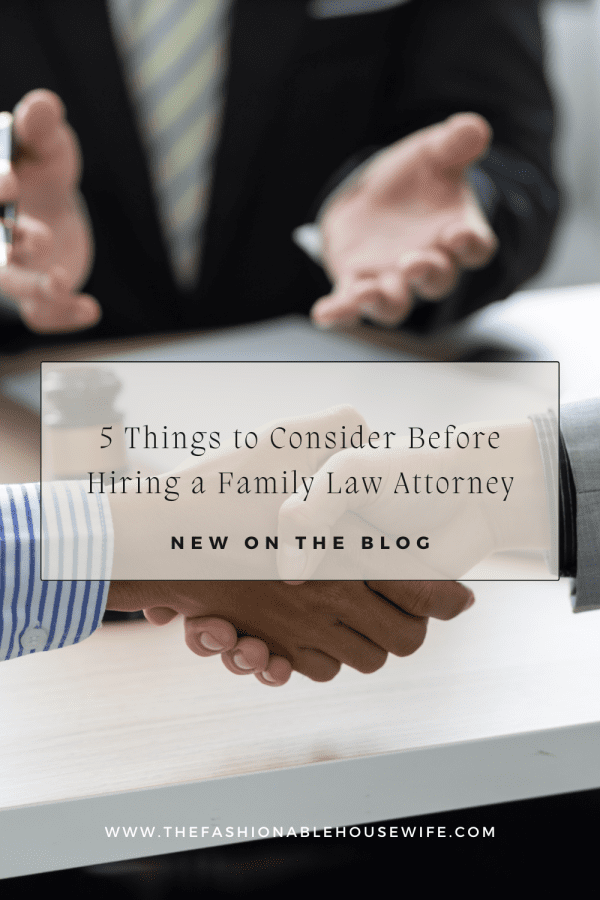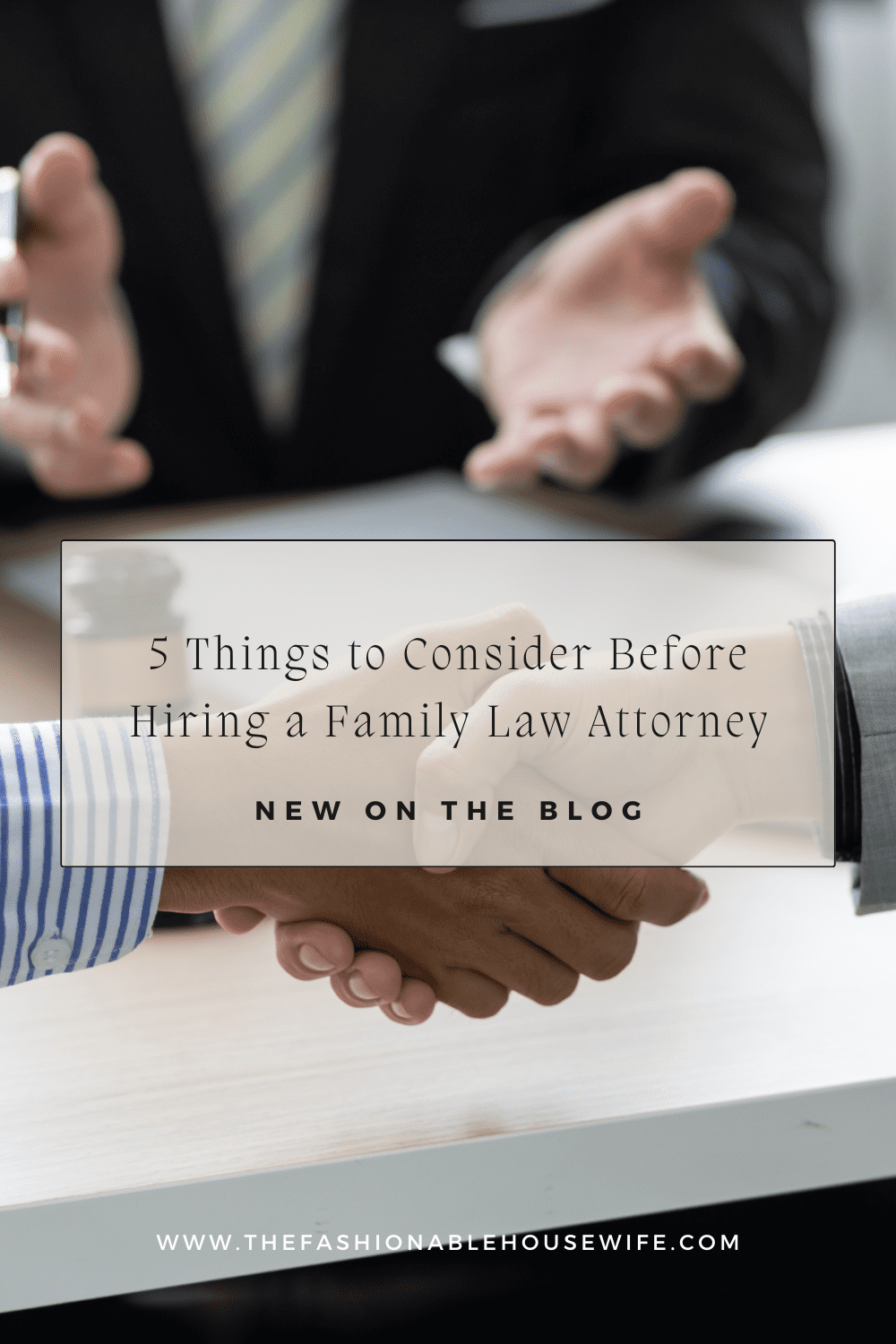5 Things to Consider Before Hiring a Family Law Attorney

Family-related legal issues — like divorce, child custody, or spousal support — are among the most draining of life’s experiences. Such legal issues require the services of a family law lawyer. Not all lawyers are alike when it comes to their approach and success rate, however. And finding the right family law attorney can be a determining factor in the outcome of your case and mental well-being.
If you need the services of a family law attorney, here are five critical things to consider before deciding who’ll best represent your interests.
1. Experience and Specialization in Family Law Attorney
Family law encompasses different things — ranging from divorce and child custody to the division of assets and alimony. When hiring an attorney, you should find one specializing in family law.
A general practice attorney won’t do since a specialist will be very familiar with local codes, court procedures, and legal practices. When so much is at stake, you need a specialist rather than a generalist.
Remember, also, that not every family law case is the same. So, ensure the attorney you’re considering has experience working on a case like yours. You should ask questions such as the following:
- How much experience do you have practicing family law?
- Have you ever worked on cases like mine? If so, what was the outcome?
An experienced attorney also possesses not only specialized legal education but also an understanding of how judges in your jurisdiction usually decide on certain cases. That can be helpful in building a better legal strategy.
2. Communication Style
Family law cases are emotionally taxing and stressful. That’s one reason you need a lawyer with a communication style that resonates with you. Find someone who can simplify the legal terminology, keep you posted about your case, and provide candid answers to your queries.
When interviewing prospective lawyers for your case, ask about availability. Will you be communicating directly with the attorney or with their associates? You’ll also want to know how fast you’ll get a response. The last thing you’ll want is to feel ghosted by your lawyer.
3. Legal Fees and Billing Practices
Legal representation can get pricey — especially if the proceedings are protracted due to the two warring parties. You’re in the best position if you understand how a lawyer is going to charge and what you’re getting for the money you pay.
Ask these questions during your interview to find the right lawyer for you:
- What’s your rate per hour?
- Do you require a retainer?
- Will you charge for calls, emails, or brief consultations?
Some lawyers have other billing arrangements or payment terms, depending on your case. It pays to ask so you can make informed decisions.
4. Reputation and Reviews
Be sure to read the online reviews, testimonials, and ratings posted on Google or even the state bar association website. Look for trends. If various reviews mention poor communication or failure to return calls, that’s a red flag.
You should also ask for referrals. Friends, family members, or other people you know can likely point you in the right direction.
Do not hesitate to request referrals from a lawyer’s former clients. Some attorneys can arrange for you to speak to former clients who can offer feedback.
5. Style of Conflict and Resolution
If you’re dealing with a high-conflict or adversarial party, you’ll need a lawyer who is skilled at courtroom litigation. Meanwhile, if you and your ex are cooperative and have a non-contentious divorce or joint custody situation, a lawyer experienced at negotiating may be your best option.
Hiring an attorney with the right conflict resolution style can improve your odds of keeping your cool during a stressful process.
One of the smartest decisions you can make when preparing for a family law crisis is choosing the right family law attorney. If you take the time to consider specialization, communication style, fee structure, reputation, and conflict resolution approach, you can make an informed decision that will best serve you.
A family law lawyer can help you navigate tough decisions and protect your rights. All you must do is find the right one for your needs.

